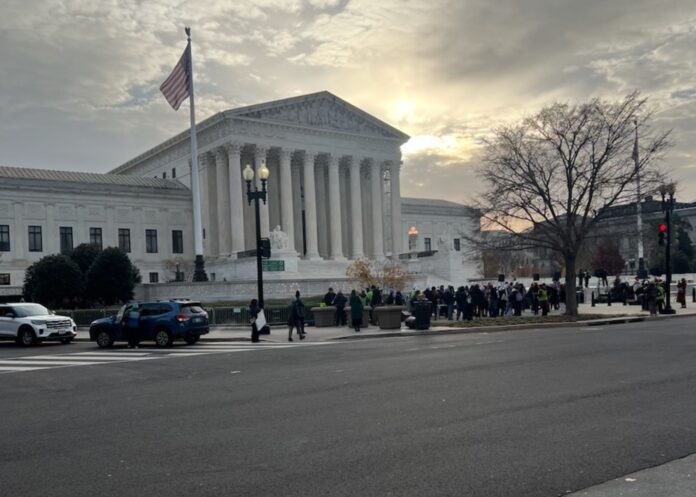
Editor’s Note: Law Week Colorado edits court opinion summaries for style and, when necessary, length.
An Oklahoma jury convicted Brenda Andrew of murdering her husband, Rob Andrew, and sentenced her to death.
The state spent significant time at trial introducing evidence about Andrew’s sex life and about her failings as a mother and wife, much of which it later conceded was irrelevant. In a federal habeas petition, Andrew argued that this evidence had been so prejudicial as to violate the due process clause. The appeals court rejected that claim because, it thought, no holding of the U.S. Supreme Court established a general rule that the erroneous admission of prejudicial evidence could violate due process.
In a per curiam opinion, the U.S. Supreme Court noted that assertion was wrong.
By the time of Andrew’s trial, the high court noted it had made clear that when “evidence is introduced that is so unduly prejudicial that it renders the trial fundamentally unfair, the Due Process Clause of the Fourteenth Amendment provides a mechanism for relief.”
The Supreme Court granted the petition for certiorari and the motion for leave to proceed in forma pauperis, vacated the judgment and remanded the case.
Justice Samuel Alito Jr. concurred in the judgment but noted he didn’t express a view on whether the high standard was met in this case.
Justice Clarence Thomas, with whom Justice Neil Gorsuch joined, dissented.
“Our precedent under the Antiterrorism and Effective Death Penalty Act of 1996 (AEDPA) establishes several rules for identifying clearly established federal law,” the dissenting opinion states. “We have instructed lower courts to avoid framing our precedents at too high a level of generality; to carefully distinguish holdings from dicta; and to refrain from treating reserved questions as though they have already been answered. The Tenth Circuit followed these rules. The Court today does not.”
Thomas wrote that the court “summarily vacates the opinion below for failing to elevate to ‘clearly established’ law the broadest possible interpretation of a one-sentence aside in Payne v. Tennessee.”
“In doing so, the Court blows past Estelle v. McGuire, which, months after Payne, reserved the very question that the Court says Payne resolved,” the dissenting justices wrote.

